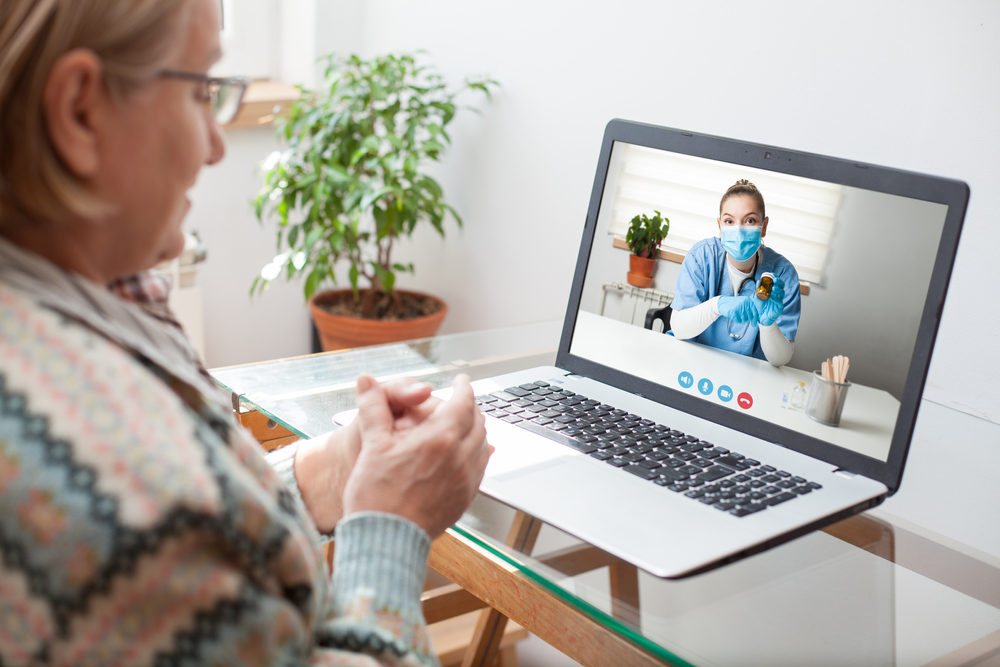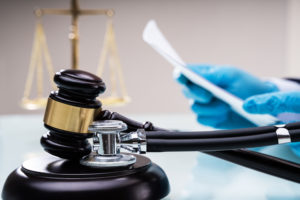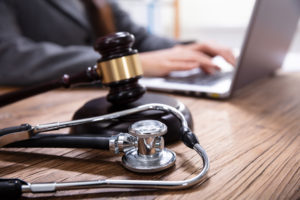
Visiting the doctor is a necessity, but it can feel like an inconvenience. The average patient spends 18 minutes in a waiting room, and up to 30% of patients have walked out on an appointment because it took too long to be seen. If you’re tired of the hassle of an in-person wait, telemedicine offers an attractive solution. Telemedicine lets health practitioners diagnose and treat patients from afar using video and phone technology, allowing you a way to see a doctor without getting off the couch. Remote visits have been on the rise, but the COVID-19 pandemic caused an unprecedented spike in telemedicine popularity. Last year, about 20% of all medical visits were conducted remotely. The global telemedicine market is expected to reach $298.9 billion by 2028.
There’s no doubt that telemedicine is convenient and safer than face-to-face contact during the pandemic, but it isn’t without its risks. Telemedicine can lead to medical malpractice, which happens when a medical professional acts negligently and causes harm. When practitioners examine patients via video call, they might miss symptoms they would notice during an in-person exam. Primary care physicians rely on telehealth for regular check-ups, but it’s surprisingly most popular among specialists, many of whom diagnose complex illnesses. The 2020 State of Telemedicine Report from Doximity reveals the specialties that most often use telemedicine to treat patients. You can find them below.
- Endocrinology
- Rheumatology
- Gastroenterology
- Nephrology
- Cardiology
- Urology
- Neurology
- Geriatrics
- Hematology/Oncology
- Pulmonology
Doctors in these fields treat conditions like kidney disease, digestive system disorders, heart problems, respiratory disease, brain disorders, and cancer. If they misdiagnose a telemedicine patient, the long-term consequences can be fatal.
Failure to Diagnose
Let’s say someone schedules a telemedicine appointment for chest pain. The provider asks a few questions before diagnosing the patient with pleurisy, a condition easily treated at home with ibuprofen. The patient takes over-the-counter medication and waits to feel better, but the chest pain soon becomes unbearable. The patient goes to a hospital and finds out they’re having a heart attack. The patient suffers unnecessary complications that could have been avoided had the telemedicine physician correctly identified the condition. The patient may have grounds to sue for medical malpractice.
Not all malpractice cases result from emergencies, so the effects may not be apparent for a long time. Suppose a patient tells a telemedicine provider that they’re feeling fatigued and losing weight without trying, and the doctor says it’s an iron deficiency and recommends a supplement. If the patient is later diagnosed with leukemia that could have been caught when they first started showing symptoms, this could be a form of medical malpractice.
How To Know If You Have a New Jersey Medical Malpractice Case
To succeed in a medical malpractice case, you need to prove negligence on the medical provider’s part. A doctor making a mistake isn’t enough on its own to qualify as medical malpractice. They must deviate from the expected standard of care and cause harm as a result. The court considers whether a similarly competent physician would have made the same decisions, and medical malpractice cases involve testimonies from experts who provide insight into how a doctor should behave in a specific scenario.
Offering telemedicine services isn’t in itself negligent, and the appointments give at-risk patients a way to receive care during a deadly pandemic. But the tradeoff is that telemedicine is inherently less comprehensive than a traditional medical visit. When doctors cannot physically examine patients, they have to rely on the patient’s self-report. They must ask probing questions, order any necessary tests, and not rush through an appointment to get to the next one.
Related: Questions to Ask Your Doctor So Serious Health Conditions Aren’t Ignored
If you’ve experienced medical harm after receiving telemedicine care, you should talk to a New Jersey medical malpractice lawyer to discuss whether you have a medical malpractice case. You might be able to recover damages for medical bills, reduced quality of life, and pain and suffering. D’Arcy Johnson Day is a premier New Jersey litigation firm that specializes in medical malpractice lawsuits. You can call toll-free at (866) 327-2952 or contact us online for a free case consultation.

As a partner with D'Arcy Johnson Day, Andrew D'Arcy has been involved in some of the nation’s most high-profile cases and investigations. His practice includes serious automobile accidents, medical malpractice, wrongful death and product defect cases. Andrew has been personally responsible for numerous multi-million dollar settlements and verdicts on behalf of his clients. He has been recognized by his peers as an "AV" rated attorney, the highest possible rating given by Martindale-Hubbell publication. Andrew has been named a "Super Lawyer" by New Jersey Monthly magazine each year consistently since 2013.














Comments for this article are closed.